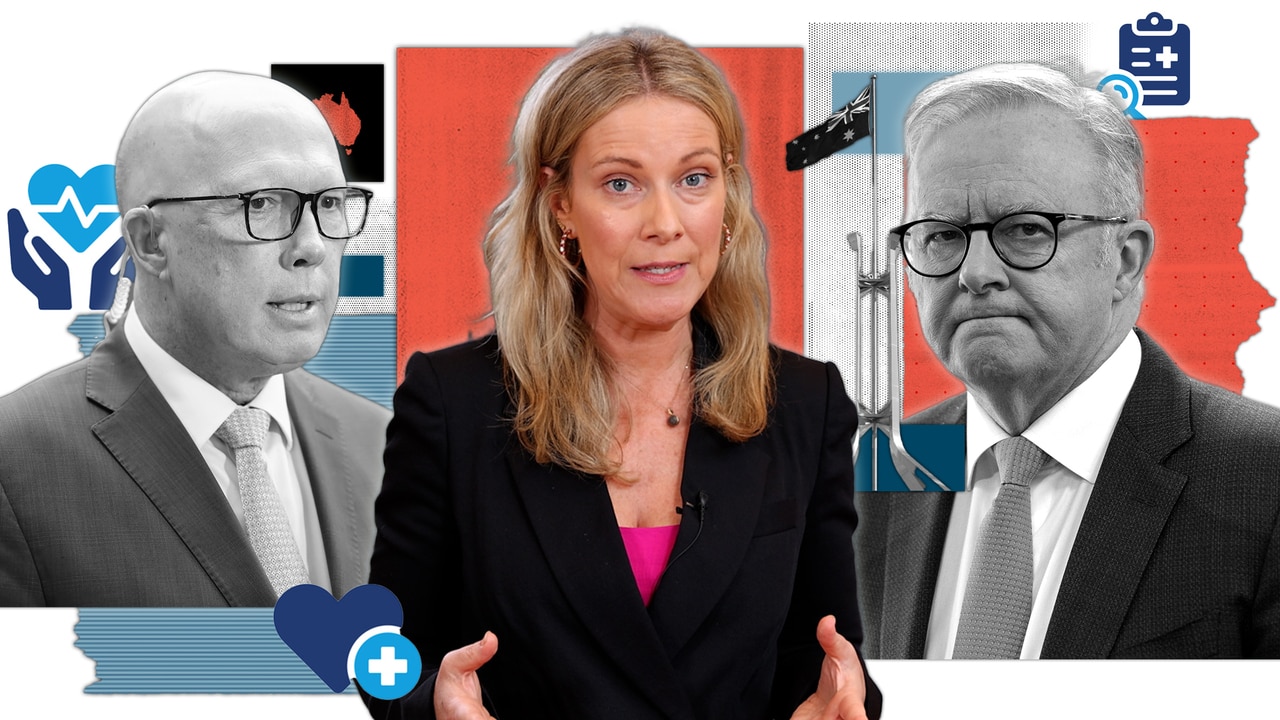For the long-term health benefits of dental care, is it time to give Medicare teeth?
While both major parties have pledged billions more in funding for Medicare, oral care may again be overlooked. Here are some of the reasons to count teeth in.

Access to oral healthcare is, or at least should be, a human right. Our teeth and mouth are not only essential for our health, but central to our identity and wellbeing. However, for a growing number of Australians, dental care is becoming increasingly unaffordable, leading to a huge unmet need, with one in three adults having untreated tooth decay, one in five experiencing toothache, and more than half of adults aged 55-plus with gum disease.
This high burden of unmet need is partly a result of policy choices – or perhaps more importantly a deliberate lack of policy action. Because health policy in Australia, as in many parts of the world, simply does not treat dental care as an essential healthcare service.
Australian governments contribute only 20 per cent of the total expenditure on dental care each year, and one-third of that is subsidising private health insurance premiums. And while countries such as France have significantly boosted their public investment in dental care during the past 15 years, from 36 per cent to 70 per cent, Australia has gone backwards. It’s no wonder that we see long public dental waiting lists, why around half the population do not visit a dental professional each year, and one in three people avoids or delays dental care due to cost.

The ramifications of this policy failure extend well beyond the mouth. Poor oral health is the leading cause of preventable hospitalisation in Australia, estimated to cost $1.6bn, and the numbers are increasing. Add in the patients who present to hospital emergency departments or the doctor’s surgery, chewing up valuable health resources. There is growing evidence that links a healthy mouth to a healthy body, with dental disease increasing the risk of diabetes, cardiovascular disease, dementia and respiratory health, adding further to the health bill. Add in hundreds of millions in missed work and school days, diminished job prospects and reduced productivity, and suddenly a modest investment in oral health doesn’t seem like such a bad idea.
Medicare is consistently ranked as one of the best universal health systems globally, particularly in terms of equity and health outcomes. Conversely, the lack of anything approaching universal coverage in dentistry means unaffordability and high out-of-pocket expenses contribute to the widespread disparities in access to dental care and oral health outcomes.

Access to affordable dental care is fast becoming a battleground in the election campaign, with questions raised about whether Australia can afford to bring dentistry into Medicare countered with claims that its absence is leaving many to face unsustainable healthcare costs. The 2023 Senate Select Committee into access to dental services made a series of recommendations, with costings provided by the Parliamentary Budget Office, ranging from $6bn to $8bn a year for a universal scheme providing essential dental services to all Australian adults, $2bn to $3bn for a means-tested scheme for adults, or $1bn to $2bn to only provide care for seniors.
There is an opportunity to build on the successful Child Dental Benefits scheme that has been running for more than 10 years providing $1132 of subsidised dental care over two years for eligible children (which is about 50 per cent of all kids, means-tested). It is used by around 80 per cent of dentists and is a good model for adult patients. A recent study found there was a sharp decline in visiting patterns and low levels of dental attendance in young adults, which is likely a combination of free or subsidised care ending at age 18 and the competing priorities of employment insecurity, precarious employment, financial instability and cost-of-living pressures. There is a significant risk in continuing to neglect this important life stage, which is why the logical approach is to have broad coverage, picking up where the Child Dental Benefits scheme stops and expanding Medicare to include dental treatment for adults.

A soon-to-be-published study has shown strong support among dental practitioners for expanding Medicare to include more dental services, with most favouring means-tested schemes targeted to patients most experiencing financial difficulty in accessing essential dental care. These dental practitioners said four in 10 of their patients were experiencing difficulty affording general dental care, and nearly half said this had increased over the past 12 months. Although most dental practitioners could see the benefits, many did express reservations that ranged from the potential for a budget black hole to concerns about the impact on their business and loss of revenue.
Australia’s oral health has suffered from years of neglect, lack of bold vision and appropriate investment in service delivery. It’s time we prioritise access to this essential component of our healthcare, otherwise we will continue to slide backwards. And the longer-term implications to our overall health and wellbeing are dire. With an election looming, it’s time for politicians of all stripes to put their money where their mouth is and commit to funding Medicare properly to ensure that it includes all of health. If we don’t give Medicare teeth now, then when?
Associate Professor Matt Hopcraft is a dental public health expert at the Melbourne Dental School.




Whether it was a quirk of fate, a pragmatic government or the influence of a professional lobby group, when Medicare was first conceived in the 1970s, one important part of the body was left out. After 50 years of neglect, is now the time to finally put the mouth back into the body and expand Medicare to include oral healthcare?